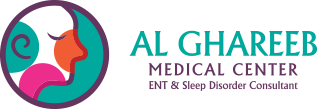An in-lab sleep study provides a board- certified sleep medicine physician with the most complete evaluation of your sleep. You will be required to stay overnight at a sleep center, hospital or a hotel room.
An in-lab sleep study, also known as a polysomnogram, records your brain waves, heartbeats and breathing as you sleep. It also charts your eye movements, limb movements and oxygen in your blood. This data will help your doctor make a diagnosis and develop a treatment plan.
An in-lab sleep study, also known as a polysomnogram, records your brain waves, heartbeats and breathing as you sleep. It also charts your eye movements, limb movements and oxygen in your blood. This data will help your doctor make a diagnosis and develop a treatment plan.
A board-certified sleep medicine physician may recommend an in-lab sleep study to:
- Test for sleep-related breathing disorders including sleep apnea.
- Evaluate behaviors during sleep due to parasomnias.
- Diagnose narcolepsy or hypersomnia along with the MSLT.
- Titrate or calibrate the levels of continuous positive airway pressure in patients who receive CPAP therapy for sleep related breathing disorders.
- Determine why treatment for a sleep disorder is not working.
For some patients suspected of obstructive sleep apnea, the sleep physician may recommend a home sleep apnea test instead of an in-lab study. A home sleep apnea test uses different equipment that you can set up yourself. An in-lab sleep study is the way to ensure that you have the proper diagnosis for a sleep disorder. Speak with your health care provider if you think you might need a sleep study.
